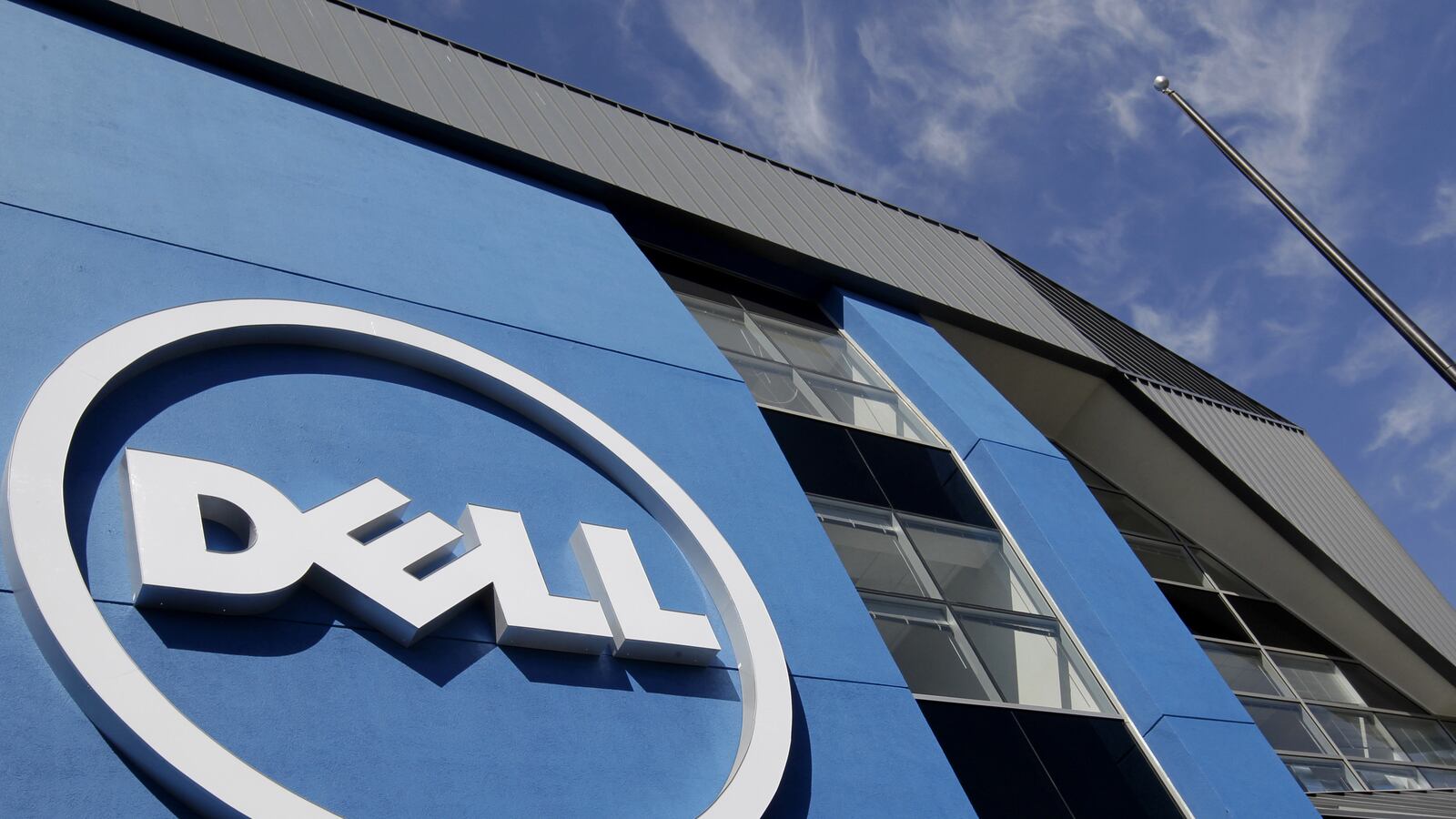On Tuesday morning, Dell announced it was going to go private in a transaction worth $24.4 billion.

The motivations of the key participants are relatively clear and transparent.
First, there’s Michael Dell, the founder and CEO of the company, who is leading the takeover bid. Dell has been one of the great success stories in American business history, parlaying a $1,000 investment in a University of Texas dorm room into a global behemoth. And yet a generation of consumers and investors has grown up to regard Dell as a poorly performing stock and a company that has lost touch with the zeitgeist. Dell’s annual revenue is basically where it was in 2008. The stock trades at the same level it did in 1998. In a computing world that is increasingly mobile-, tablet-, and Apple-based, Dell is looking at a bleak future. PC sales actually fell in 2012. So this is Michael Dell’s chance to escape the demands of public investors, fix the company he created, and change the narrative arc surrounding his career.
Next, there’s Silver Lake, the savvy private-equity firm that is marshaling much of the capital for the buyout, and for whom Dell represents a clear value play. Private-equity firms have historically avoided technology firms, because their principals generally don’t understand them. It’s much easier to draft a five-year plan for a railcar company or a shoe manufacturer than for a software firm. But as technology industries have matured—especially technology manufacturers—they’ve taken on some of the same characteristics as old-line industrial firms. Silver Lake, which grasped this truth early on, has a record of acquiring technology companies whose growth story seems to have ended. Then it does what publicly held companies might be loath to do: declare defeat in certain areas, shut down some business lines, offload others, slim down the company, and use cash flow to pay dividends to the owners, or pretty it up for a sale down the road.
And finally, there’s Microsoft. Microsoft?? The Seattle-based software giant, which is providing $2 billion in financing for the deal, seems like an unlikely participant. But its interest shows one of the small ways in which Microsoft, formerly the most valuable company in the U.S., is coming to grips with the decline of the industry it helped pioneer, and which showered so many riches upon it.
Microsoft, too, has become a mature business. In recent years, it has been deploying chunks of its vast cash pile (about $85 billion) to invest in new areas like search, content, and music—so far without much success.
Check out the chart below showing the 10-year performance of Dell and Microsoft compared with the Standard & Poor’s 500.
But Microsoft also spends a lot of time and money playing defense in its core business of selling software that runs computers. And that’s why it is getting involved with Dell. With its huge cash pile and giant market capitalization (about $230 billion), Microsoft could easily have afforded to simply buy Dell—that would guarantee that the PC maker would use Microsoft’s software products and programs going forward. But such a move toward vertical integration wouldn’t go down well. The PC wars are bitter and still raging. Look at the snippy press release HP put out in reaction to the deal for its rival. “The company [Dell] faces an extended period of uncertainty and transition that will not be good for its customers,” HP said.
For the sake of remaining neutral, Microsoft won’t be buying a piece of Dell. It will be lending it a significant chunk of cash. The move is really a new form of what’s known as vendor financing—the practice of companies lending money to their customers as a way of keeping demand high. Think of how GMAC, then owned by GM, used to finance the purchases of Chevrolets. Or the way Saks might issue a store credit card with favorable terms to shoppers. Or the way GE Capital lends giant sums of money to customers who buy GE-made jet engines and electric turbines.
Vendor financing is a time-honored way of keeping customers close and captive. Of course, with this deal, Microsoft is adding a new wrinkle. It’s not lending money to a Dell operating unit today so that it will turn around and buy Microsoft products tomorrow. Rather, it’s lending Dell’s corporate parent money today so that in the years to come, it will continue to incentivize Dell customers to purchase products in which Microsoft’s products are standard features.
Microsoft is providing $2 billion in cash, which is a small chunk of the overall purchase price. But debt has a way of binding people to one another. It creates obligations. In this case, the obligations aren’t simply financial. The Wall Street Journal reported Tuesday that Microsoft won’t get shares of a seat on Dell’s board. Rather, “the companies would tighten their relationship regarding use of Microsoft’s Windows software.”
When Dell started making desktop personal computers 30 years ago, the Microsoft operating system was essentially its only choice to run them. But it’s a different world now. Desktops, PCs, tablets, servers, and storage devices can run on a multitude of operating systems. In effect, Microsoft is using a loan to buy what it has had difficulty earning on its own merits: customer loyalty.






